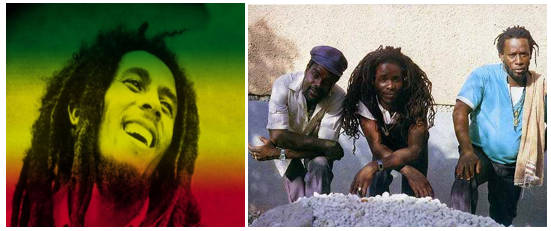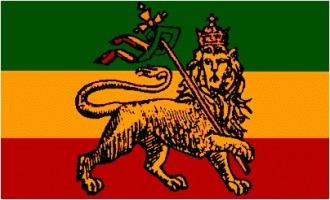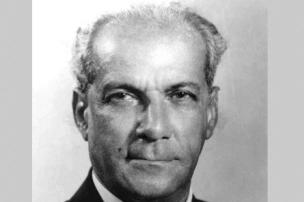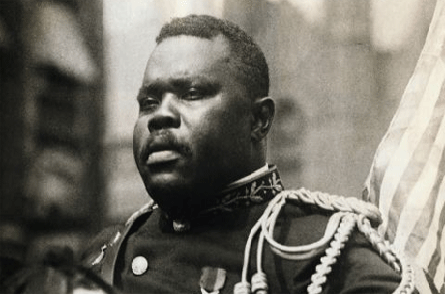Introduction
Reggae music is one of the few genres of folk music that are still influential and mainstream. Reggae was developed in Jamaica in the 1960s from a fusion of various genres. Since its creation, it has evolved greatly with regard to types and influence on popular culture. According to historical records, reggae music was created from fusing European and African folk dance music. One of the most significant impacts of reggae is its contribution to social change.
One key area that reggae has impacted significantly is politics. For many years, the genre has been associated with poor people because a large percentage of its lyrics are aimed towards criticizing the various social challenges that exist in society. For example, corruption racism, oppression, and poverty are major themes explored by reggae musicians. Many reggae artists criticize and oppose the prevalence of injustice and oppression in many parts of the world that arise from poor governance and unstable political systems. Reggae is a tool for social change, especially in the political arena.
Origin of reggae
Jamaica is famous for its white-sand beaches and sunny days that make up most of the year. In addition, it is also known for the origin and evolution of reggae music. As mentioned earlier, reggae music originated in Jamaica in the 1960s from music genres such as Rocksteady, American Rhythm and blues, and Ska. Reggae has popularized the Jamaican culture throughout the world and has become a major form of entertainment.
Despite its evolution into a cultural phenomenon, reggae music emerged as a political form of protest aimed at the oppressive rule of colonialists. Some of the artistes that popularized reggae and gave it an international appeal include Bob Marley, Burning Spear, Peter Tosh, the Mighty Diamonds, Marcia Griffiths, Bunny Wailer, and Judy Mowatt among others.

Despite its global appeal, the genre has been largely misunderstood because many people associate it with poverty and crime. Its cultural and political significance is often overshadowed by its origin. In order to understand its social impact, it is necessary to thoroughly analyze the social, cultural, and political environments under which it emerged. Reggae music has created social and cultural change in numerous ways around the globe.
Cultural change
Since the emergence of reggae music in the 1960s, the genre has evolved into a cultural phenomenon especially after the rise of the Rastafarian culture. After its origin, the music’s lyrics mainly focused on socially appealing themes such as love and peace. However, as the Rastafarian movement gained popularity in Jamaica, the genre started incorporating themes such as religion and politics. The Rastafarian culture is founded on the principle of resistance that reggae music adopts in its advocacy against political oppression. Followers of Rastafarianism have been marginalized for a long time mainly because of their beliefs and physical appearance.
The situation has been worsened by the association of Rastafarianism with reggae music. Another reason for the marginalization is the group’s belief that their ancestry and identity are rooted in the African continent. Rastafarians were the first Jamaicans to embrace reggae and use it to fight oppression and the social injustices that they were subjected to by colonial authorities. They adopted unique beliefs and physical appearances in order to make themselves distinct from their oppressors. The influence of Rastafarianism on reggae is evident from the use of words such as Jah to denote God and Babylon to stand for oppressive authorities.
Reggae and politics
The social impact of reggae music has been felt in the political arena. The genre has addressed social injustices such as corruption, bad governance, and oppression of the poor for a long time. Since its founding, reggae has evolved tremendously and given the rise of several denominations such as lovers rock and dancehall that explore distinct themes. Despite its divergent evolution, reggae has always been used to present socio-political commentaries to the world.

Many reggae lyrics strive to pass messages that advocate for justice and empowerment of people especially those living in poverty. For example, a renowned musician is known as Jimmy cliff once described reggae music as the cry of the poor. A scholar known as Dr. Carolyn Cooper described reggae music as the voice of the oppressed in society mainly because of the political rants it contains and the themes it explores. Reggae music has always been used as a platform for presenting social, political, and economic issues that many people encounter in their lives. Therefore, it is the obligation of reggae artists to speak out against social injustices through their lyrics.
A common theme that is explored by many artists is poverty. Many musicians define poverty as a modern form of slavery that emanates from poor governance and corruption. Jamaica’s economy is in turmoil due to its involvement with the International Monetary Fund (IMF) and the North American Free trade Agreement (NAFTA). In that regard, musicians have taken it upon them to sensitize and educate the Jamaican people about their country’s economic situation. They have assumed the roles of leaders because of their commitment to truth and the betterment of lives.
The spread of Rastafarianism
One of the key social impacts of reggae music is the emergence and spread of Rastafarianism across the globe. Jamaica has experienced several revolutions and periods of social unrest that were characterized by resistance. All the efforts and initiatives that were aimed at bringing change led to the creation of a religion known as Rastafarianism. The religion embraced reggae as its main channel for spreading its message to the people. Reggae music and the concept of resistance that prevailed during the emergence of the religion influenced the ideologies, beliefs, and attitudes of Jamaicans. The main precept of Rastafarianism is social change.
Reggae is the medium through which followers bring that change. Leaders such as Marcus Garvey, Sam brown, and Leonard Howell and musicians such as Bob Marley, Peter Tosh, and Bunny Wailer are credited with popularizing the Rastafarian movement because they supported its ideologies.
Rastafarianism became popular because it addressed issues that affected the black population that was experiencing poverty and oppression. It was widely regarded as a religion for blacks because it aimed to emancipate the black population from social, political, economic, ad religious oppression. Early leaders such as Garvey encouraged the people to eradicate the slave mentality and view themselves as equal to the whites who were their oppressors.
The movement had a strong African culture that attracted low-class people because of its dress odes, distorted physical appearance, and the belief that Africa was the origin of humans. The Jamaican government was opposed to the growth of the group because of its harsh criticism against authorities and politicians. For example, a comment by Norman Manley who was Jamaica’s prime minister between 1955 and 1962 was a clear indication that the government did not welcome the existence of the movement. He said that Rastafarians were enemies of Jamaica and requested citizens to report any suspicious activities by members of the group.

Such comments made the movement stronger. According to the Marxian view of social movements, Rastafarianism gained popularity because of a concept referred to as collective consciousness. Collective consciousness is the awareness that develops within a group that is comprised of members who endure oppression together and understand that there is a need for change. The movement used reggae music as a means of collective consciousness among the lower class and as a channel for telling their world about their plight.
The music also painted an ideal picture of how society should be. For instance, Peter Tosh’s song titled “equal rights and justice’ advocated for the fair and equal treatment of Jamaicans by the whites. In the song, Tosh admonished the colonialists for denying Jamaicans their rights and oppressing them. The major factors that united members of the Rastafarian movement were poverty within the lower class, limited access to resources, political exclusion, and religious oppression.
Reggae as an ideology
As mentioned earlier, the Rastafarian movement used reggae as a way of disseminating its beliefs, ideologies, and attitudes. Reggae music advocated for universal equality and pan-Africanism. The movement fought for national and international political and social equality. Members believed that everyone was supposed to get equal access to resources in Jamaica and the world, as well as equal political representation in government. With regard to pan-Africanism, reggae passed the message that it was necessary for African descendants around the world to progress socially, religiously, politically, and economically. The movement’s philosophical approach was based on the teachings of Haile Selassie and Marcus Garvey.
Marcus Garvey was one of the founders of the Pan-African Movement who emphasized the relocation of African descendants in different parts of the world to Africa. Repatriation is one of the earliest core beliefs of the Rastafarian movement. On the other hand, Haile Selassie emphasized the equality of all people and fought against ideologies that encouraged segregation of individuals.

Bob Marley is widely recognized as a key pillar of Rastafarianism because of the role he played in spreading the teachings of the movement internationally. He used his music to create awareness of the philosophy of reggae music as well as Rastafarianism. The social influence of reggae resulted in the election of Michael Manley as the Jamaican Prime Minister twice. Manley was elected into government because he represented the interests of the lower class as well as those of Rastafarians.
The movement had a voice in the political arena because Manley represented them. His election was largely due to the massive support he received from the lower class and members and Rastafarians. The election of Manley, as well as the great influence of reggae music, led to several social reforms including equal pay for women, illegalization of the stigma of illegitimacy, universal health care, universal education, and increased rights of trade unions. Other social reforms included the migration of wealthy individuals from Jamaica and loss of investments because the elite class feared communism.
International appeal
The Rastafarian movement has evolved from a small group of lower-class individuals into an international cultural phenomenon that believes in equality for all. One of the core beliefs that have increased the movement’s membership is the belief in black power as well as the need to end oppression in all forms. Another belief that Rastafarianism holds is that the ideologies and values of the western world do not support the interests of black people.
Members believe that ideologies create wars and turmoil in the world instead of peace and unity. For example, Rastafarians criticize the Catholic Church because they supported slavery in the pretext that they were improving the lives of Africans. In that regard, they believe that their teachings are based on lies and trickery.
Rastafarianism is the most famous black religion that promotes the beliefs and ideologies of black people and fights for the equality of all people regardless of their race or social and economic status. The movement has undergone several changes since its founding that have aimed at bringing change in Jamaica and the world. For example, it made attempts at self-government, morphed into a force for change in Jamaica, and later became the Rastafarian Movement Association (RMA).
The Pinnacle commune was an initiative of the movement that aimed to create a government-controlled by black people. Its leader (Leonard Howell) failed because the community in which members were living was destroyed by police. Rastafarianism is a strong force for social change because the RMA helps members who get in trouble with the law and disseminate its ideologies through the publication of a monthly magazine. The group believes that liberating its members is a necessity. The poor living conditions found in Jamaica and other developing countries have acted as a uniting cord that pulls members together.
Rastafarianism uses the term “Babylon” to refer to people and conditions that hinder their betterment. Their main goal is to bring down Babylon and save its people from oppression and poor living conditions. Rastafarianism is opposed to many governments because of their policies that make it difficult for citizens to advance and improve their lives. Members believe that the major cause of poverty is the greed of capitalism. Many people and organizations pursue economic prosperity without regard to societal wellbeing.
In contemporary society, the main causes of inequality are wealth and power. Wealthy and powerful individuals are focused on expanding their influence even at the expense of collective wellbeing. People are fighting each other and competing aggressively for more power, wealth, and prestige. People have been socialized to believe that success is equivalent to wealth and power. According to Rastafarianism, the ideologies of Babylon are destructive and insidious. I order to fight such ideologies, they advocate for empowerment, enlightenment, and spiritual uplifting through reggae music.
Dissemination of messages for social change
Reggae music is a platform for disseminating important messages of Rastafarianism about issues that cut across all aspects of human life such as politics, education, and economic wellbeing. Universal suffrage is one of the most common messages spread by reggae music that targets the illiterate, oppressed, and poor. The percentage of people living in poverty and oppression is high. Therefore, reggae gives them a social safety valve to express themselves and present their discontent.
A key aspect of reggae music is the use of lyrics to attack social ills in the world. For example, many songs criticizing police brutality, corruption, and war have been written. These songs have gained international recognition because of the strength and influence of the messages they contain. Many people embrace reggae music because of its diversity. In addition to exploring social ills, it also explores general themes such as peace, love, and unity.
Rastafarians incorporate a call for social change in all their activities. Historically, movements emerge whenever inequalities compel people to live in poor conditions that do not meet their basic survival requirements. In most cases, movements embrace violent means of expressing themselves and effecting change. Rastafarians use deviant behavior to fight for their rights. An example of such behavior is the smoking of marijuana and the growing of dreadlocks.
These behaviors are encouraged in many reggae songs as a means of pushing governments to address the plight of the lower class members in society. Rastafarianism has received criticism on many occasions because of the violence associated with its members. One of the social changes that Rastafarians fight for is the redistribution of wealth and land because the elite has great control of resources. Hey, argue that redistribution of wealth and land is the only way that poverty can be eradicated in Jamaica and other parts of the world. They want change to occur and benefit not only themselves but everyone in the world. They should be supported in their efforts to fight oppression, corruption, poverty, and bad governance.
Conclusion
Reggae music has for many years been criticized because of the negative association with poor neighborhoods, poverty, and crime. In many countries, this music genre is famous among young and poor people who experience the harsh effects of unemployment and economic difficulties. Reggae music has evolved from a local form of music to an international cultural phenomenon that issued to effect change in society.
Its lyrics incorporate messages that call for social and political change such as an end to oppression and inequality. Reggae music gained popularity in Jamaica and the world after it was embraced by Rastafarianism as its avenue for disseminating its ideologies and fighting societal oppression. It has been used by artists, politicians, and communities to criticize corruption, poverty, and bad governance. In addition, it is used to promote positive aspects of human life such as love and peace. Deviant behaviors such as violence and smoking of marijuana have given the social and cultural outfit a negative image. Reggae has been denounced by many people because it is common among lower-class people fighting the elite and advocating for redistribution of wealth and the repatriation of black people to Africa.
Works Cited
Edmonds, Ennis. Rastafari: From Outcasts to Culture Bearers. London: Oxford University Press, 2002. Print.
King, Stephen, Bays, Barry, and Renee Foster. Reggae, Rastafari, and the Rhetoric of Social Control. New York: University Press of Mississippi, 2007. Print.